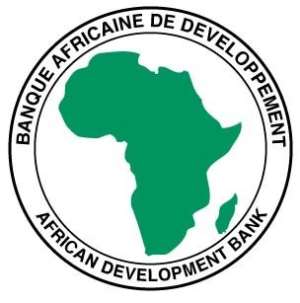
03 December 2012, Ibadan – The African Development Bank (AfDB) and researchers today launched the US$63.24 million AfDB-funded initiative that aims to raise agricultural productivity and also lift millions of Africans out of poverty.
The 5-year, multi-CGIAR center initiative known as “Support to Agricultural Research for Development of Strategic Crops in Africa” (SARD-SC) is a research, science, and technology development initiative aimed at enhancing the productivity and income derived from cassava, maize, rice, and wheat – four of the six commodities that African Heads of States, through the Comprehensive African Agricultural Development Program, have defined as strategic crops for Africa.
During the launch of the initiative in Ibadan, Nigeria, the Director General of the International Institute of Tropical Agriculture (IITA), Dr Nteranya Sanginga called on researchers to deliver 'quick impact' to justify the investments in research.
“We should begin to demonstrate impact in the next two years using available technologies already developed. Everything in SARD-SC is about impact and not only writing scientific papers,” Dr Sanginga said.
The SARD-SC Project comes at an opportune time when food security and nutrition are high on the national agenda of the AfDB Regional Member Countries (RMCs), as rising food prices push millions of people into extreme hunger and poverty. The SARD-SC allows – for the first time ever in a single project – a continental coverage of the food security challenges in Africa.
“What we intend to achieve goes beyond food security. We are looking at boosting incomes and reducing poverty in Africa,“ said Mr Ousmane Dore, Resident Representative, Nigeria Field Office of the AfDB, who launched the event on behalf of AfDB's President, Dr Donald Kaberuka.
“Apart from supporting research with broad sectoral and/or economic-wide objectives, the social impact of this intervention is significant. This is underscored by the all-inclusive nature of the project beneficiaries: farmers' groups, youth, private sector, policy makers, rural entrepreneurs, national agricultural research and extension systems (NARES), community based organizations, and nongovernmental organizations,” he explained.
The project, which will run until 2016, will be co-implemented by three Africa-based CGIAR centers: IITA, Africa Rice Center, and the International Center for Agricultural Research in the Dry Areas. IITA is also the Executing Agency of the project.
Another CGIAR center – the International Food Policy Research Institute – a specialized technical agency, will support the other three centers.
CGIAR is a global agriculture research partnership for a food secure future. Its science is carried out by the 15 research centers who are members of the CGIAR Consortium in collaboration with hundreds of partner organizations. www.iita.org
Dr Kenton Dashiell, Deputy Director General (Partnerships & Capacity Development), said the distinctive nature of the project offered an opportunity to improve food security in Africa.
He also called on partners and researchers to work towards building a new and better future for Africa using the project as a tool. For information, please contact: Godwin Atser, [email protected]




 Glovo to abandon operations in 'hot' Ghana May 10
Glovo to abandon operations in 'hot' Ghana May 10
 Join me in another ‘dumsor’ vigil, I can’t do it alone – Yvonne Nelson to Ghanai...
Join me in another ‘dumsor’ vigil, I can’t do it alone – Yvonne Nelson to Ghanai...
 Ejisu by-election: Voting underway
Ejisu by-election: Voting underway
 Upper East: Dry Dorongo Dam leaves farmers in despair
Upper East: Dry Dorongo Dam leaves farmers in despair
 Local Govt Ministry to sanction MMDAs for failing to implement GARID projects
Local Govt Ministry to sanction MMDAs for failing to implement GARID projects
 Grave diggers demand proper lighting system to save Tafo cemetery
Grave diggers demand proper lighting system to save Tafo cemetery
 Ejisu by-election: 106,816 voters are expected to cast their ballots today
Ejisu by-election: 106,816 voters are expected to cast their ballots today
 A/R: Tragic highway accident claims 3 lives, one other person injured
A/R: Tragic highway accident claims 3 lives, one other person injured
 ‘No surgeries were cancelled at our facility due to Dumsor’ — Korle Bu Teaching ...
‘No surgeries were cancelled at our facility due to Dumsor’ — Korle Bu Teaching ...
 Glovo delivery site to cease operations in Ghana on May 10
Glovo delivery site to cease operations in Ghana on May 10
